From "giving a fish" to "giving a fishing rod"
If in the past, poverty reduction work mainly stopped at directly supporting "giving fish" to help people overcome temporary difficulties, now, the approach has been innovated in the direction of "giving fishing rods" to create opportunities and provide livelihoods for people to become self-reliant.
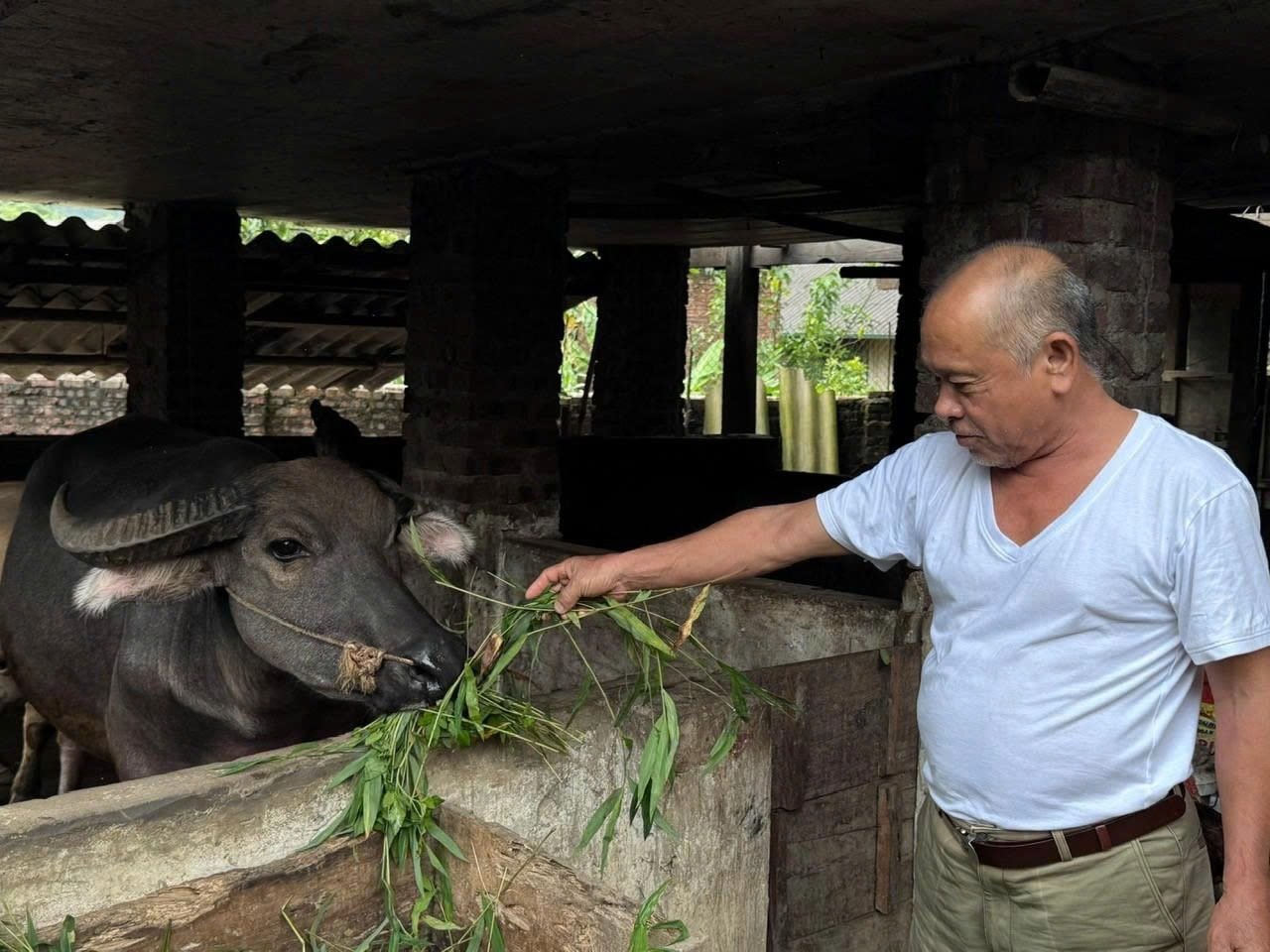
Mr. Nong Duc Thai's family, Khau Cuom village, Vinh Thong commune received support for breeding buffaloes.
In Vinh Thong commune, Mr. Nong Duc Thai's family (Khau Cuom village) is one of the typical households benefiting from the National Target Program on Socio -Economic Development for Ethnic Minorities and Mountainous Areas, 2021-2025 period. In 2024, his family was supported with a breeding buffalo. Thanks to proper care, the buffalo grew healthily, reproduced and became a sustainable source of livelihood.
The government provides the "fishing rods" but I have to know how to "fish". I learn more about animal husbandry techniques and actively seek knowledge from many sources to apply it more effectively. Now the buffalo herd has helped the family have a stable income, Mr. Thai shared.
That simple story is a vivid demonstration of a new approach in poverty reduction work that focuses on empowering and giving opportunities, helping people truly take control of their path out of poverty.
Knowledge is the key to escaping poverty
Not only stopping at material support, Thai Nguyen province identifies vocational training and improving production capacity for rural workers as the "golden key" to open the door to sustainable poverty reduction.
In Yen Phong commune, Ms. Sam Thi Diep in Yen Binh village is one of many Tay ethnic women actively participating in vocational training. Her family does a mixed economy with a model of raising pigs, chickens, ducks combined with fish farming. Previously, due to a lack of knowledge about animal nutrition, production efficiency was not high. After participating in a short-term vocational training course on processing mixed feed for livestock organized by Cho Don Vocational Education - Continuing Education Center, Ms. Diep learned how to take advantage of available raw materials to process feed herself, reduce costs and increase productivity.
“Participating in the class helped me better understand the techniques of care and food preparation suitable for each growth stage, thereby saving costs and increasing profits,” Ms. Diep shared.
To date, Yen Phong commune has over 5,700 workers, of which the rate of trained workers is 61%, with 20% having degrees and vocational certificates. In the first 9 months of 2025 alone, the locality has created new jobs for 105 people, of which 20 are exported workers and 85 people work at domestic enterprises.
According to Vice Chairwoman of Yen Phong Commune People's Committee Long Thi Hai, the locality aims to increase the proportion of trained workers to 70% by 2025, of which 25% have degrees and vocational certificates. "We consider vocational training as the key step. When people have knowledge and a career, they will have sustainable jobs and confidently escape poverty," Ms. Hai emphasized.
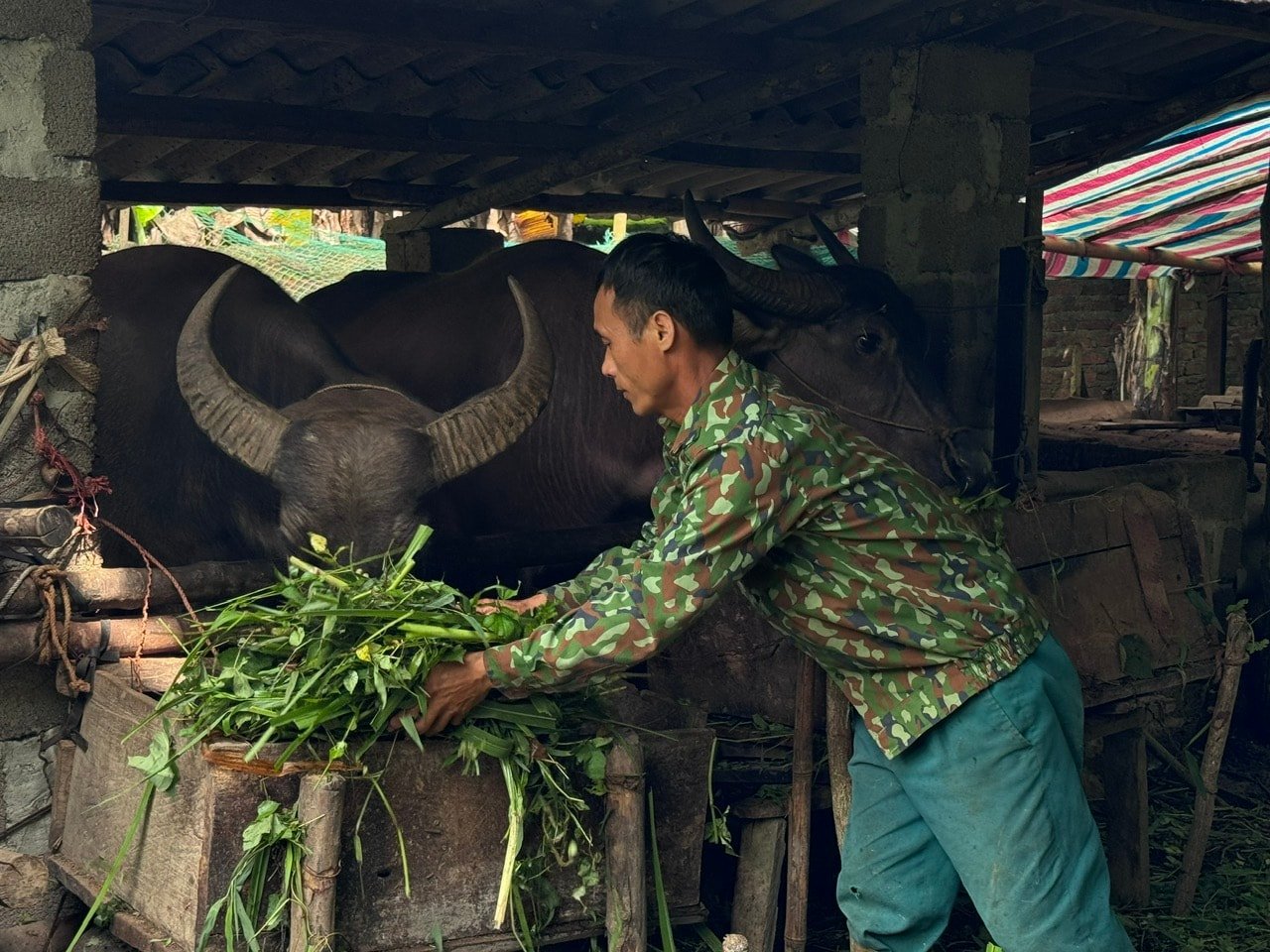
Mr. Hoi in Khau Cuom village, Vinh Thong commune takes care of animals supported by the State.
Policy to spread development momentum
Thanks to the synchronous implementation of programs and projects, Thai Nguyen is witnessing clear changes in ethnic minority areas. In the period of 2021-2025, the whole province has approved and implemented 306 projects, including 68 projects linking production and product consumption according to value chains, and 278 community development projects.
At the same time, professional agencies have provided vocational training to more than 20,000 students, supported nearly 400 ethnic minority workers to work abroad, and organized hundreds of conferences to disseminate and advise on labor export policies for about 6,000 people. These figures reflect the great efforts of the political system in transforming policies into actions, helping people access real development opportunities.
Many models of livelihood support and production linkages associated with value chains have been effective, bringing stable income and at the same time arousing the spirit of self-reliance and initiative of ethnic minorities.
Sustainable poverty reduction is not only a task but also a measure of fairness, humanity and inclusive development. In Thai Nguyen, the achievements have clearly demonstrated that spirit through the close leadership of the Party Committee and the government; the participation of sectors and organizations; and most importantly, the will to rise up of the people themselves.
From effective livelihood models, practical vocational training classes, to an increasingly complete policy system, all are creating a solid foundation for the goal of "leaving no one behind". People in the highlands of Thai Nguyen now not only have more jobs and income, but also have the belief and aspiration to get rich legitimately right in their homeland.
Sustainable poverty reduction, a long but meaningful journey, continues to be fueled by humane and creative policies and by the determination of people with strong aspirations. That is the sure path for the ethnic minority areas of Thai Nguyen to move forward with the general development of the country, contributing to the realization of the sustainable development goal by 2030.
Source: https://daibieunhandan.vn/huong-di-ben-vung-trong-giam-ngheo-vung-dong-bao-dan-toc-thieu-so-o-thai-nguyen-10393462.html


![[Photo] The Third Patriotic Emulation Congress of the Central Internal Affairs Commission](https://vphoto.vietnam.vn/thumb/1200x675/vietnam/resource/IMAGE/2025/10/30/1761831176178_dh-thi-dua-yeu-nuoc-5076-2710-jpg.webp)
![[Photo] National Assembly Chairman Tran Thanh Man receives foreign ambassadors who came to say goodbye](https://vphoto.vietnam.vn/thumb/1200x675/vietnam/resource/IMAGE/2025/10/30/1761820977744_ndo_br_1-jpg.webp)
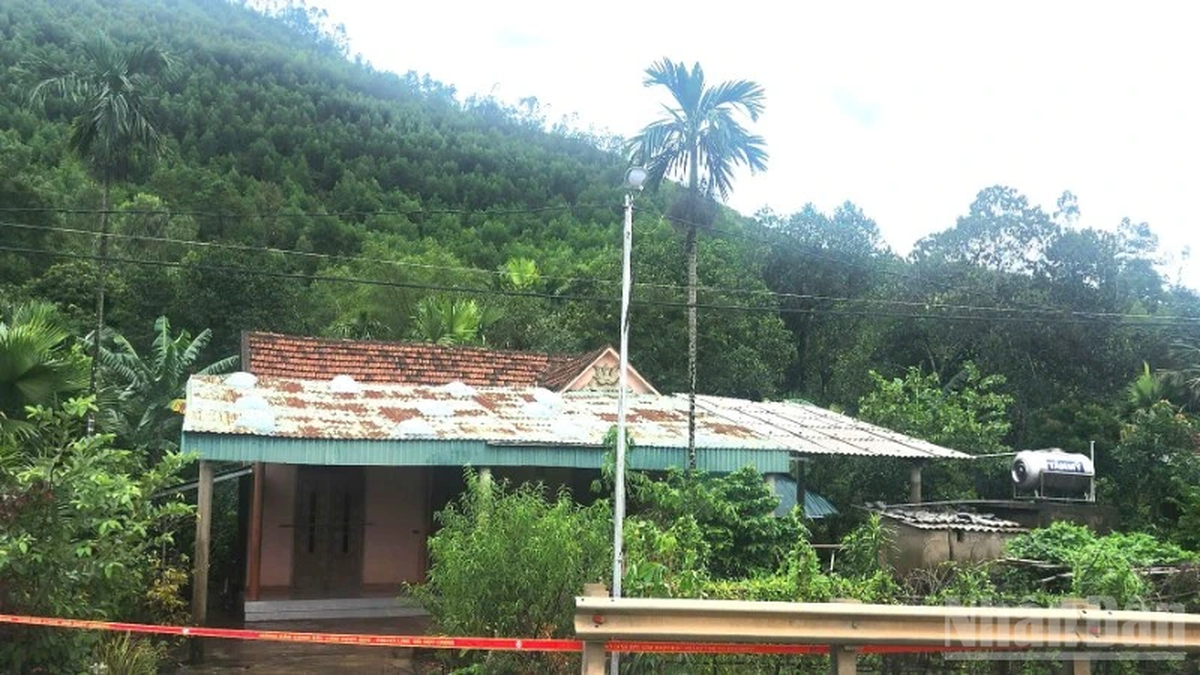
![[Photo] General Secretary To Lam attends the Vietnam-UK High-Level Economic Conference](https://vphoto.vietnam.vn/thumb/1200x675/vietnam/resource/IMAGE/2025/10/30/1761825773922_anh-1-3371-jpg.webp)
![[Photo] Touching scene of thousands of people saving the embankment from the raging water](https://vphoto.vietnam.vn/thumb/1200x675/vietnam/resource/IMAGE/2025/10/30/1761825173837_ndo_br_ho-de-3-jpg.webp)
![[Photo] General Secretary To Lam meets former British Prime Minister Tony Blair](https://vphoto.vietnam.vn/thumb/1200x675/vietnam/resource/IMAGE/2025/10/30/1761821573624_tbt-tl1-jpg.webp)


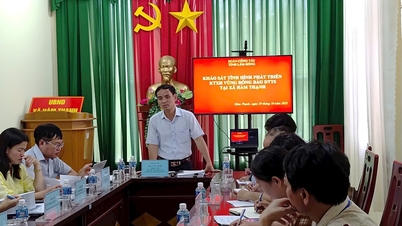

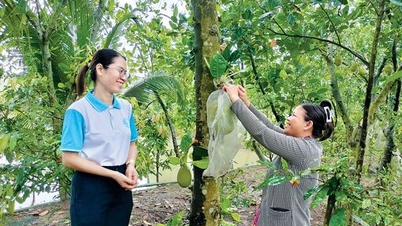



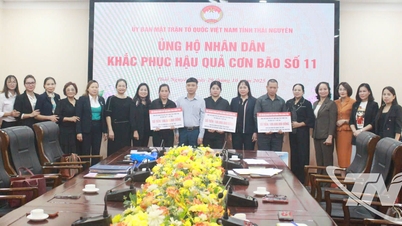
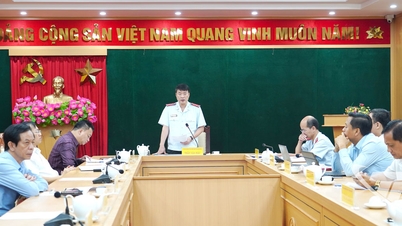
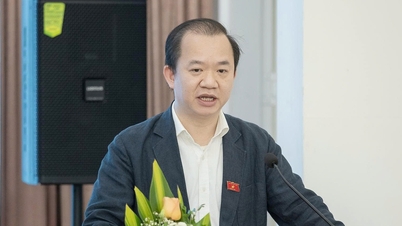



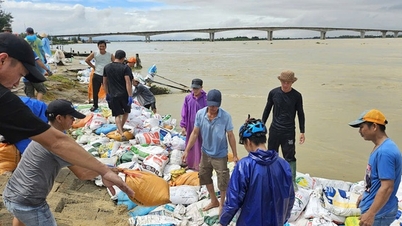

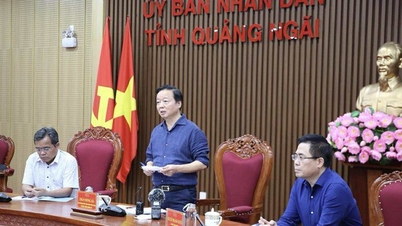
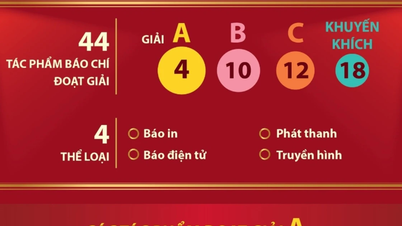





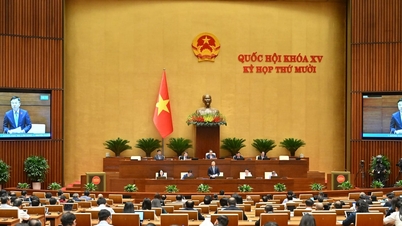
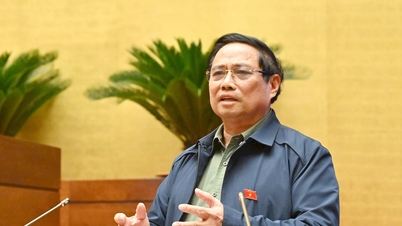

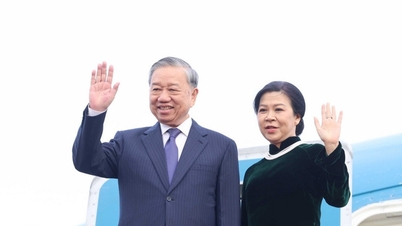

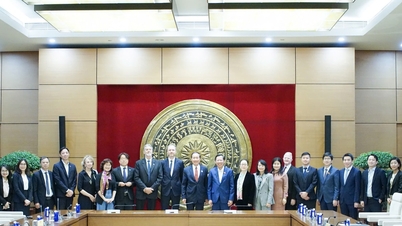




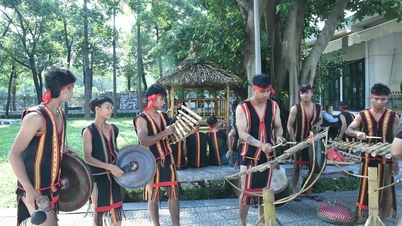

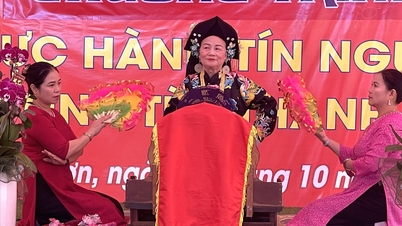





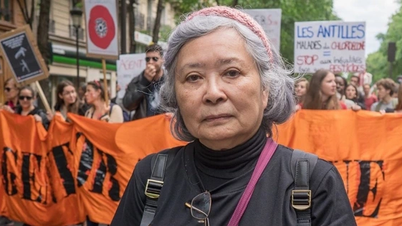

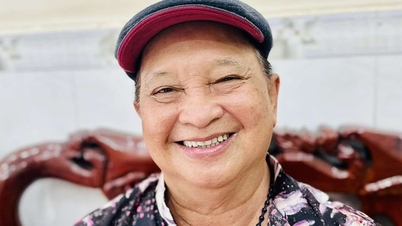



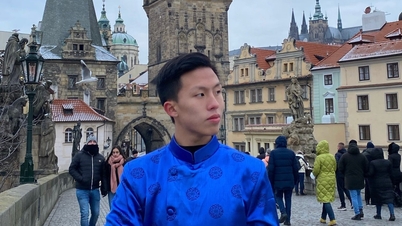

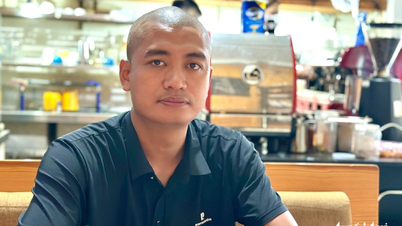
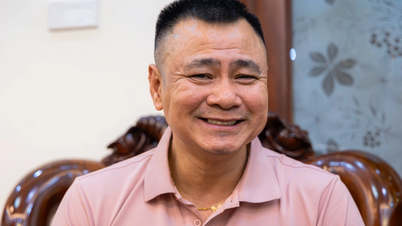

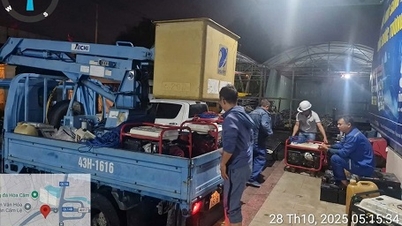



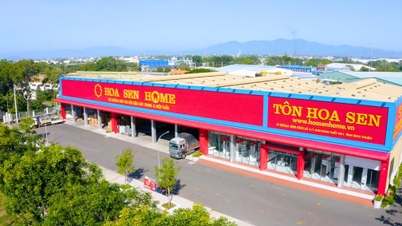










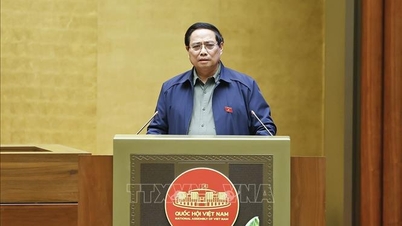

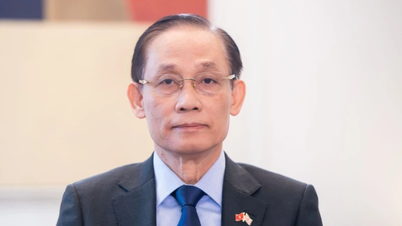

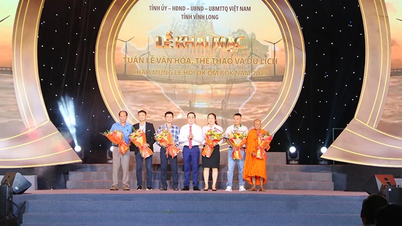





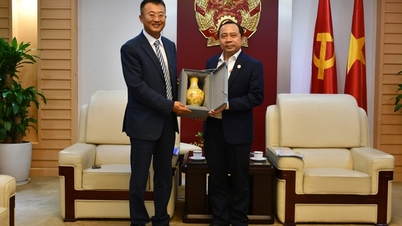
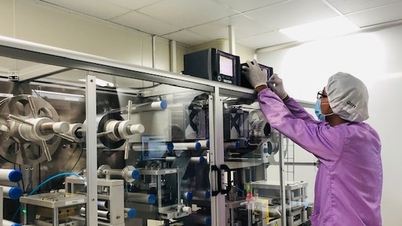
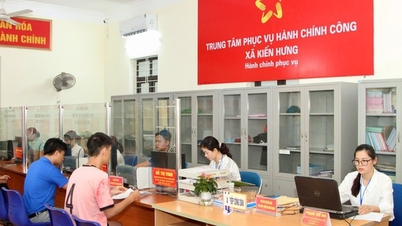
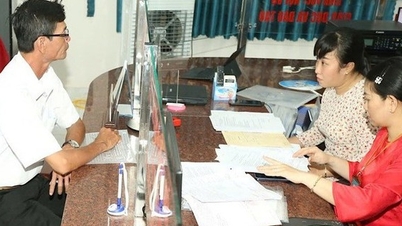
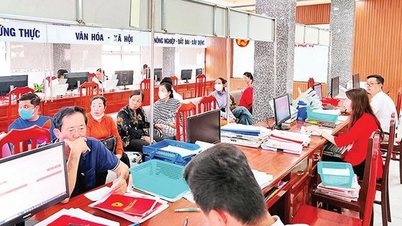
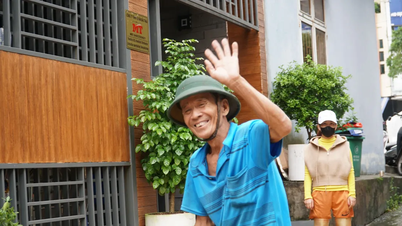
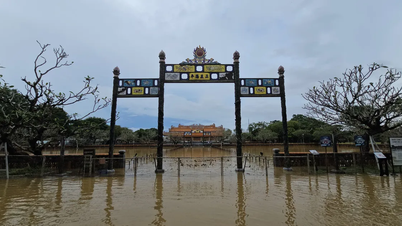


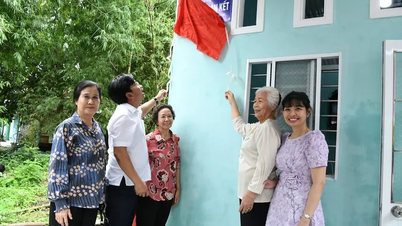

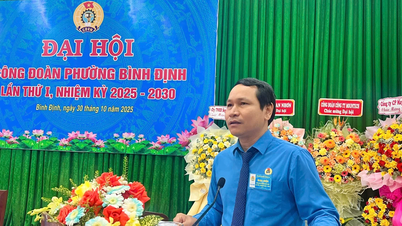











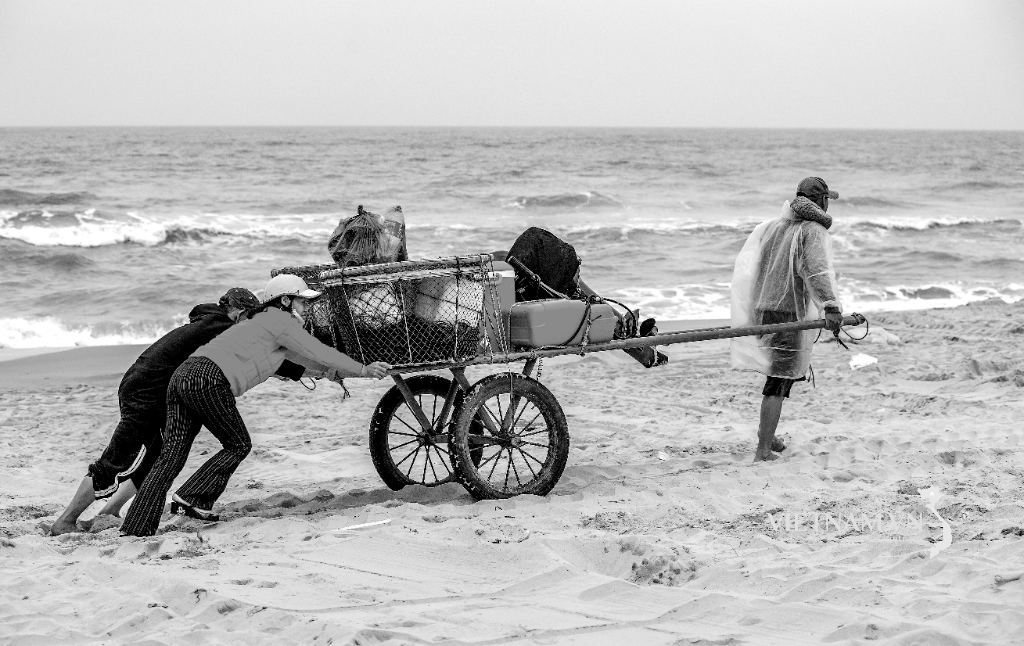



Comment (0)